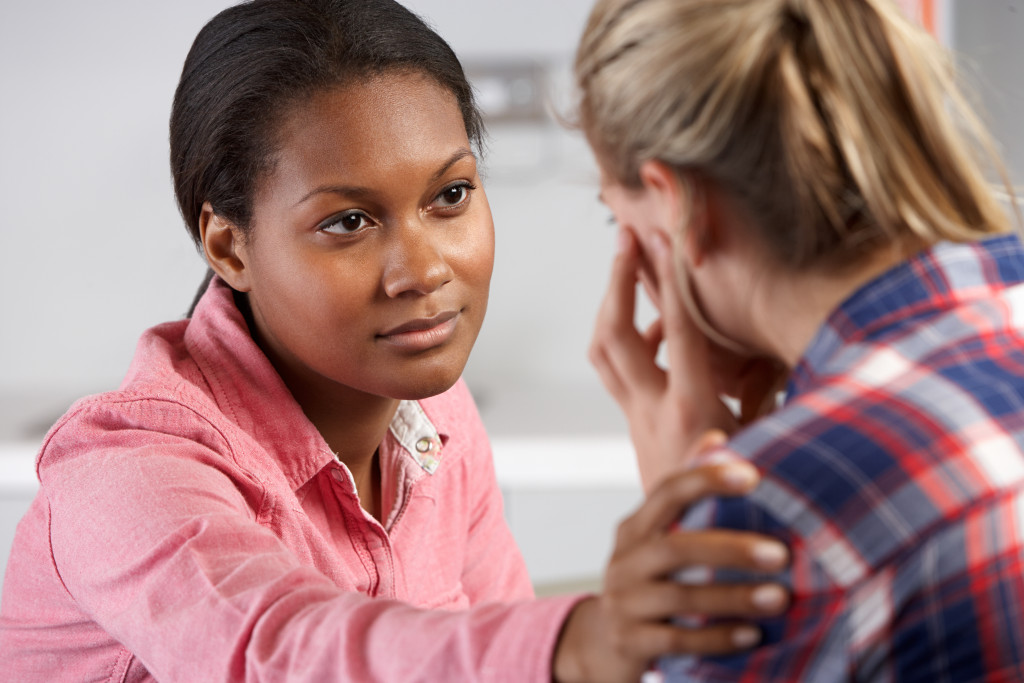Mental health issues can be challenging to address, and finding the right treatment can sometimes feel intimidating. But there are many options that don’t involve medication or therapy. Here are a few lesser-known treatments for mental health problems that you can explore:
Cognitive Behavioral Therapy (CBT)
CBT is one of the most widely used forms of psychotherapy, but it’s often overlooked as a treatment for mental health issues. It focuses on identifying and changing negative thought patterns that lead to emotional distress and dysfunctional behaviors. This includes journaling, self-monitoring, relaxation techniques, and goal setting.
CBT can be used to treat a range of mental health issues, including depression, anxiety, phobias, and PTSD. CBT can also be used to address long-term habits or behaviors that can be linked to mental health issues. It can help people better understand their feelings and behavior and learn coping skills that can be used to manage difficult emotions.
Acupuncture
Acupuncture is an ancient healing practice that involves inserting needles into pressure points in the body to help restore balance and reduce stress. Research has shown that acupuncture can help reduce symptoms of depression and anxiety, as well as improve sleep quality.
Acupuncture works by activating the nervous system, releasing hormones such as serotonin and endorphins that can help reduce stress. It’s also thought to reduce inflammation in the body, which has been linked to an increased risk of mental health issues. Acupuncture can be used with psychotherapy and/or medication to address mental health problems.
Exercise
Exercise is an often-overlooked yet powerful way to manage mental health issues such as depression, anxiety, insomnia, and even PTSD. Just 30 minutes of moderate physical activity three times a week can positively impact your mental health by releasing endorphins (the “happy hormones”) which are known to reduce stress and improve moods.
Exercises you can do to help improve your mental health include walking, running, cycling, swimming, and even yoga. You can also consider employing the help of a personal trainer who can help you develop an appropriate workout plan that is tailored to your needs and abilities. Exercise can also help reduce physical symptoms of mental health issues such as fatigue or poor concentration.
Meditation and Mindfulness
Regular meditation and mindfulness practices have been found to be very beneficial for improving moods and reducing stress levels. Studies have shown that regular meditation helps to regulate emotions by calming the mind and body while also improving focus and concentration skills—all of which contribute to better overall mental health management practices.
You can take up classes or individual instruction to get started in meditation and mindfulness. Many online resources, such as guided audio recordings and instructional videos, can help guide you in your practice. Additionally, many apps available can provide guidance and support throughout the process.
Herbal Remedies

Herbal remedies are another lesser-known treatment option for managing mental health issues such as depression, anxiety, insomnia, PTSD, etc., without relying on pharmaceutical medications or traditional therapies like counseling or psychotherapy sessions. Some commonly used herbal remedies include lavender essential oil for relaxation, chamomile tea for stress relief, St John’s Wort for mild depression, Valerian Root for insomnia, Passion Flower for anxiety, etc.
Herbal remedies can be combined with other treatments, such as psychotherapy and/or medication. Note that some herbs can interact negatively with certain medications so it’s always best to consult with your doctor before taking any herbal remedies.
Ketamine Treatment
Ketamine is a fast-acting anesthetic that has been found to have powerful antidepressant effects. It has been used to treat various mental health disorders such as depression, anxiety, and PTSD. While it’s still in the early stages of use in clinical settings, ketamine has already shown promising results in reducing symptoms of severe depression and anxiety.
If you’re considering trying ketamine treatment, make sure you go to professionals specializing in the field and follow their prescribed dosage. They will be able to monitor your progress and make adjustments if needed. Ketamine treatment is generally considered safe when used under medical supervision and should not be attempted without professional oversight.
Mental health issues can be daunting to address, but many effective treatments are available beyond traditional medications and psychotherapy. Cognitive behavioral therapy, acupuncture, exercise, meditation and mindfulness practices, herbal remedies, and even ketamine treatment have all been shown to help reduce symptoms of mental illness.
Ultimately the best approach will depend on your individual needs; it’s essential to consult with a doctor or qualified professional who specializes in mental health care before embarking upon any form of treatment. With the proper guidance and support system in place, you may find that one or several of these lesser-known treatments for mental health problems is just what you need to get back on track.

